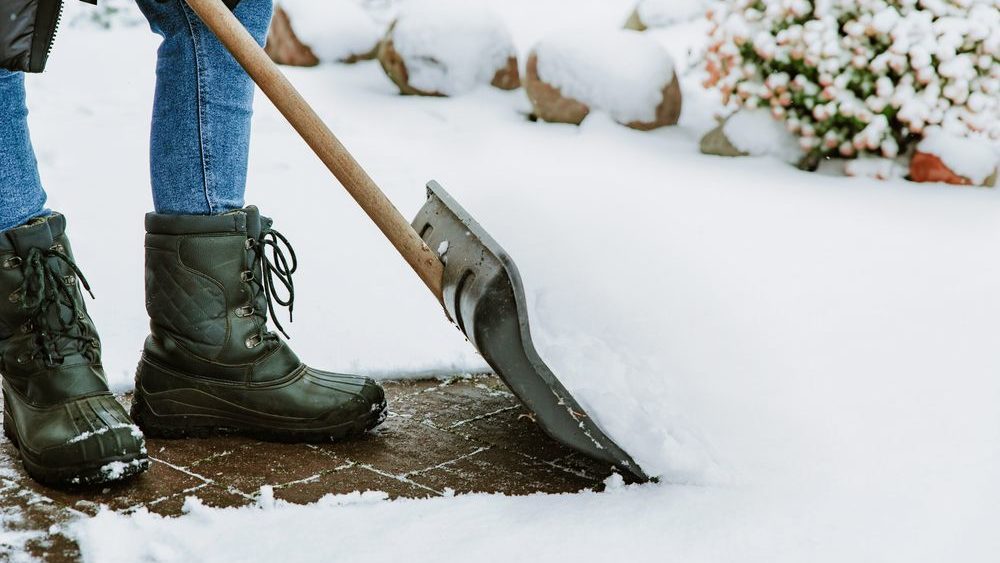Avoid Winter Damages that Might be Prevented if Your Tenant Knows What to Do.
Renters are not held responsible for damages caused by Mother Nature, especially the ones that winter storms can bring. But there are proactive means of lessening the possibilities, first of which is to have it written into your rental lease the things the renter agrees to manage.
Also, having an understanding with your tenants that they are expected to keep an eye on certain potential winter maintenance issues is always helpful.
Managing Snow and Ice at your Rental Property
Remind your tenants of the local snow and ice removal laws in your town. If your lease agreement states that your tenant is responsible for clearing snow from the public sidewalk in front of the property, remind them of their responsibility to do so. In some areas, if snow is not cleared within the required timeframe the property owner will be fined if the city has to do it for them.
Texas: While not every city in Texas has an ordinance on snow removal, in Dallas, Ordinances Nos. 3314 and 19398 state that an owner, tenant, lessee or occupant must remove snow and ice from the sidewalk in front of the building. Residents have 3 hours to clear snow and ice which falls or accumulates before 4 p.m.
Remind your tenant about acceptable de-icing measures. If your community prohibits the use of salt, consider synthetic deicing material, sand or kitty litter as an alternative.
If your renter experiences an ice dam, ask them to notify you right away. House damage from ice dams can be costly and you need to manage it in a timely manner, hopefully preventing them altogether.
If a pipe bursts on your rental property, your renter cannot be held responsible. But they can be apprised of steps to take that could afford preventative measures, such as:
- Disconnect and drain garden hoses.
- Cover outside faucets with insulating foam covers.
- Turn off the sprinkler system.
- If the temperature drops below 20 degrees, keep one or two faucets running slowly at all times. Water running through the system will prevent the line from freezing.
- Keep the cabinet under the kitchen sink open so warm air can flow around the pipes.
- Cover exposed pipes (both indoors and out) with insulating foam covers.
- Tenants should call their landlord or property manager immediately if a pipe has frozen and is close to bursting.
- Have a plan in place for how to de-thaw a frozen pipe before it bursts. This might include installing heating tubes along exposed pipes, hiring a professional to visit the property, or asking your renters to point a space heater at the frozen pipe.
If tenants know to take these actions it can save bigger problems such as the pipes actually bursting and causing major chaos and unwanted cost.
Helping your tenants understand a few simple actions to take can avoid winter damages. Make them aware of these easy steps:
- Cover or remove your window air conditioners.
- Turn your ceiling fans on low in reverse (clockwise when looking up) to circulate warm air.
- Inspect fireplaces, and chimneys before using, and have them cleaned if needed.
It’s common sense to bring in potted plants from outdoors and cover any outside plants with insulating materials, remembering to remove it once the temperature goes above freezing. However, your tenants may not realize that these simple steps can help you and the rental property. Also brush off snow after each snowfall from trees and plants with a broom to prevent them from breaking due to heavy snow buildup is a smart winter maintenance tip.
In addition to these winter reminders to your renters, don’t forget there are additional steps you should take as the property owner to protect your property this time of year.
- Remove debris from gutters — water can back up, causing leaks and ice dams or damage to your roof and siding.
- Inspect and upgrade attic insulation and ventilation.
- Stay off the roof during freezing weather, but once the ice and snow have melted, inspect the roof for any damage.
- Check the furnace or heating system to make sure it is in good condition before it starts working overtime to keep your renters warm.
- Check the batteries in smoke detectors and carbon monoxide alarms to make sure they are working properly.
- Consider installing storm windows to keep cold weather at bay.
By putting a collaborative agreement in place with your tenants, potential winter damage can be avoided or certainly mitigated. Quality tenants are usually willing to share in such measures, which they consider helping to care for the place they call home and your property. If winter maintenance or for that matter, any time of the year maintenance is a time consuming matter for you, consider the advantages of a professional property manager such as Cousin James Management. We can take the stress out of being a property owner. Give us a call or contact us online. We’re here to help.




